Annual Reports
LSC's annual reports cover LSC’s events, accomplishments and news in a calendar year. They also include financial reports.
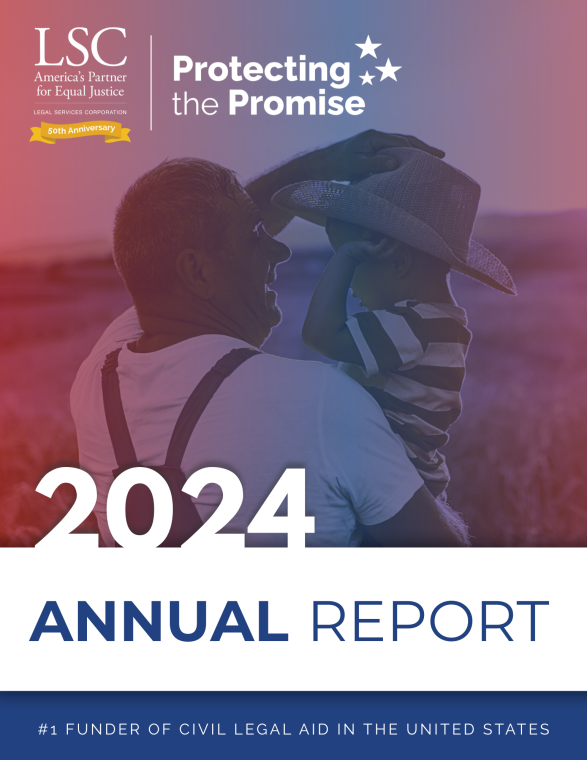
2024 Annual Report
For 50 years, the Legal Services Corporation (LSC) has been protecting the promise of equal justice for all by providing millions of Americans with access to life-changing legal assistance. To commemorate LSC's 50th anniversary in 2024, LSC reaffirmed our mission by reaching out to communities across the country, demonstrating the impact of LSC's work for hardworking Americans who would otherwise face the legal system alone — a complex system built by lawyers, for lawyers.
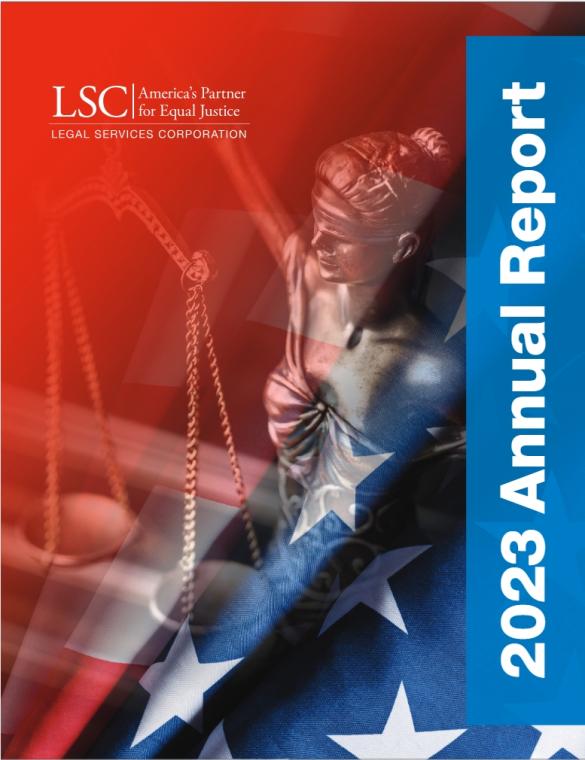
2023 Annual Report
LSC's 2022 Annual Report features highlights from the year, including the Justice Gap Report release, disaster relief grants and the work of LSC's Rural Justice Task Force. It also includes the stories of clients helped by LSC-funded legal services providers.
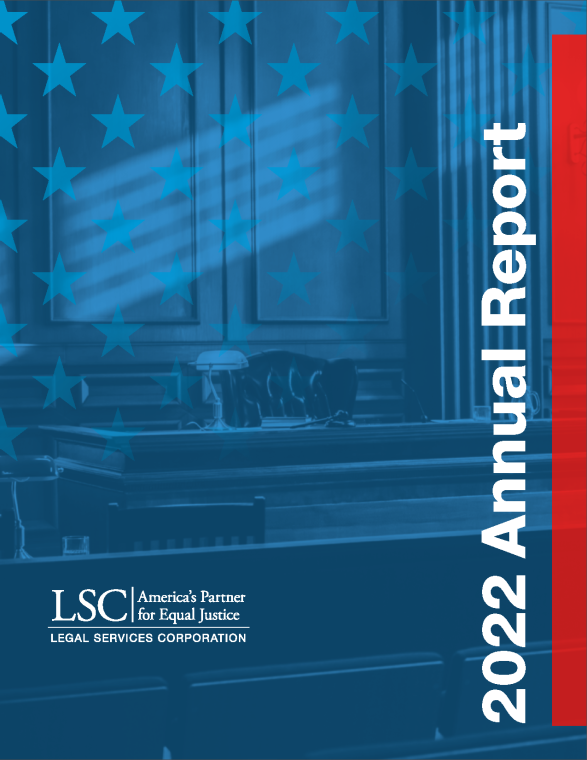
2022 Annual Report
LSC's 2022 Annual Report features highlights from the year, including the Justice Gap Report release, disaster relief grants and the work of LSC's Rural Justice Task Force. It also includes the stories of clients helped by LSC-funded legal services providers.
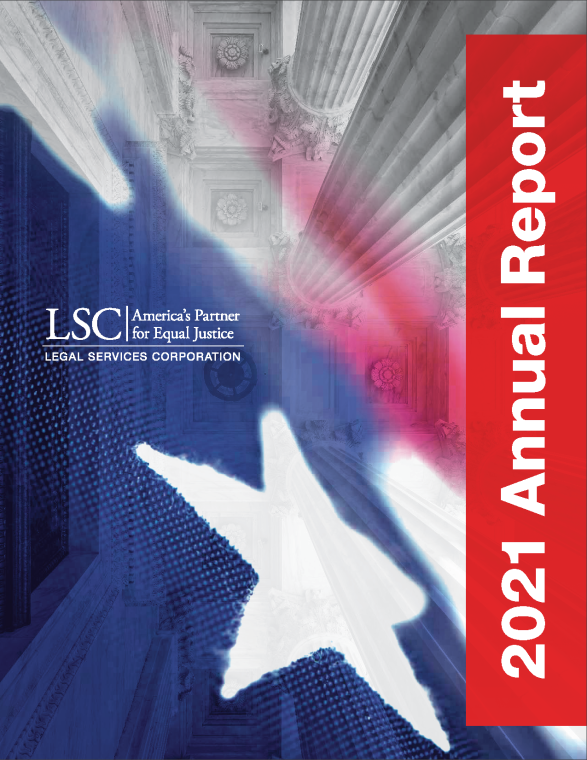
2021 Annual Report
LSC's 2021 Annual Report features highlights from throughout the year, including the release of the Veterans Task Force Report, LSC's virtual briefings and client stories.
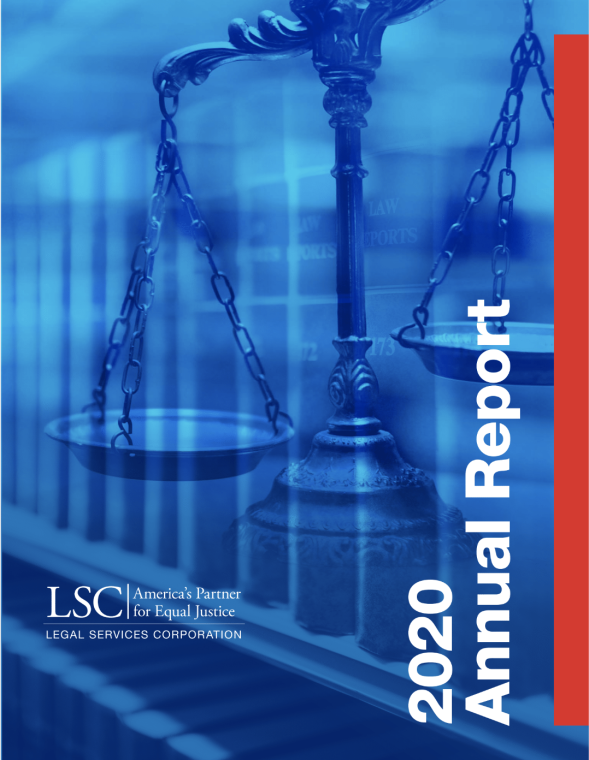
2020 Annual Report
LSC's 2020 Annual Report highlights LSC's accomplishments and initiatives throughout the year as LSC and its 132 grantees dealt with the COVID-19 pandemic's challenges.
